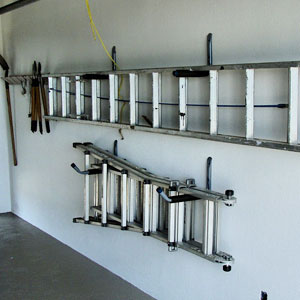
Resources
- Home
- Cheap Waterproof Walls
- How to Waterproof Basement Walls
- How to Waterproof Walls
- Waterproof Baesment Walls
- Waterproof Basement Walls
- Waterproof Bathroom Walls
- Waterproof Brick Walls
- Waterproof Concrete Walls
- Waterproof Exterior Walls
- Waterproof Foundation Walls
- Waterproof Garage Walls
- Waterproof Kitchen Walls
- Waterproof Wall Paint
- Waterproof Wall Panels
- Waterproof Walls Coating
- Waterproof Walls Companies
- Waterproof Walls Covering
- Waterproof Walls DIY
- Waterproof Walls FAQs
- Waterproof Walls Prices
Waterproof Garage Walls
If you want to avoid moisture problems by waterproofing garage walls, there are two key steps you need to take:
- Choose the right material for your garage
- Once that material is in place, select the most effective option to protect it
Drywall vs. Wall Boards
Many homeowners commonly misunderstand the difference between drywall that's water resistant and 100% waterproof wall boards. Because standard drywall can easily damage from even small amounts of water, this is not the right choice for a garage that you want to waterproof. What makes water resistant drywall different is it isn't this sensitive to water. However, the confusion about this product and wall boards is the extent of water resistant drywall's durability. While it can work really well in areas like behind a toilet, most contractors agree that it doesn't hold up to the demands of an area like a shower.
Because drywall has its shortcomings, if you want the most durable way to waterproof your garage, you are better off choosing 100% waterproof wall boards. This option is fully resistant to water. As a result, you won't have to worry about it warping after being exposed to water. Wall boards are also moisture-proof. If one of the reasons you are interested in waterproofing your garage walls is because you don't want to have issues with mold or bacteria growth, this option will prevent all of those problems.
Standard Waterproofing Sealer
While 100% waterproof wall boards can greatly reduce the amount of moisture that's in your garage, they won't fully waterproof your entire garage. You need to take an additional step if you want to ensure that every inch of your garage walls are resistant to the impact of moisture. The best way to create this level of protection is to use standard waterproofing sealer. This product is specifically designed to coat walls and other vertical surfaces. Once you've fully coated your garage walls with sealer, they'll no longer be susceptible to moisture.
Commercial Quality Waterproofer
Once you take care of your garage's walls, there's still one more important step you need to complete. The reason there's another step is in addition to the walls is ensuring you won't have mold growth means you also need to take care of the floor. Most garages have concrete flooring. Although concrete is very durable, it's also a prime source of moisture. You can eliminate this moisture by sealing the concrete. The most effective way to do this is by using commercial quality waterproofer.
This type of waterproofer works in a similar way to waterproofing sealer. However, the reason you want to use waterproofer instead of sealer is the latter is specifically designed to be used on vertical surfaces. Trying to apply it to concrete would leave areas exposed. By using waterproofer, you can ensure that it fully seeps into the concrete and eliminates all of the tiny pores where moisture can accumulate. Because you can apply waterproofer with a roller or sprayer, it won't take you long to finish waterproofing your garage.
